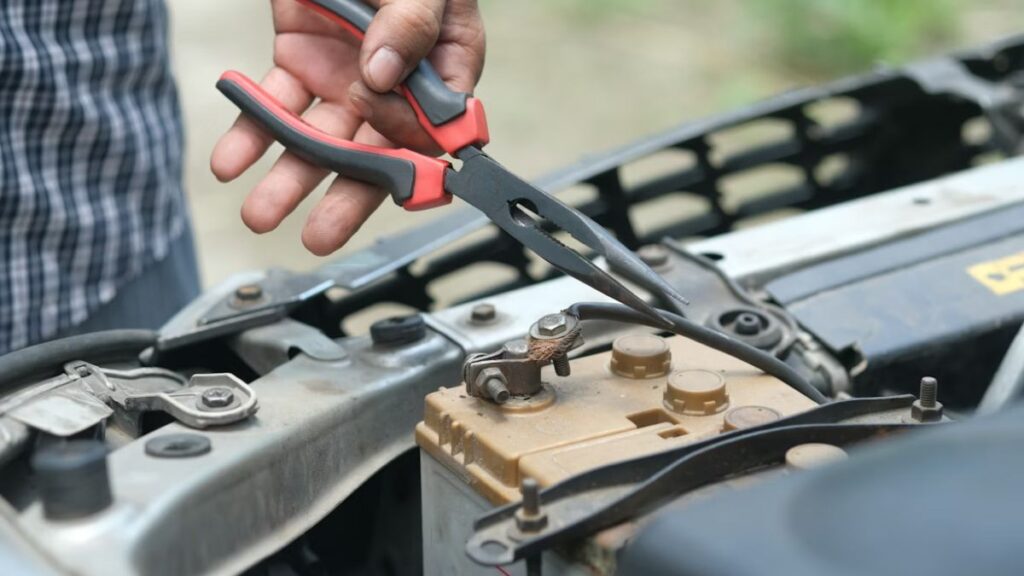Starting a job in maintenance can be rewarding. You get to fix things, keep equipment running, and provide vital support for a workplace. Yet it can also be a heavy physical and health challenge.
So if you’re about to begin working a maintenance role, know that there are risks you’ll want to understand. This article outlines some of the most common health risks to know before you accept that role.
#1 Musculoskeletal Injuries and Chronic Pain
Maintenance work often involves lifting, pushing, pulling, climbing, bending, and stretching in awkward positions. Over time, those movements can cause injuries to your back, shoulders, neck, and knees.
Already, across the world, cases of musculoskeletal disorders are expected to increase by 115 percent from 2020 to 2050. In maintenance work, the repeated strain from heavy loads, working overhead, or assuming unusual postures for repairs can wear on your body.
Even if you don’t feel pain immediately, the cumulative effect of awkward posture and manual handling can lead to chronic issues. For example, a worker might find that a shoulder injury from months of overhead bolting doesn’t heal properly and leads to decreased mobility.
Paying attention to biomechanics, using the right tools, taking breaks, and varying your tasks can help minimise the wear and tear.
#2 Cancer
In 2025, around two million people in the US are likely to be diagnosed with cancer. Those working maintenance jobs are also at risk of developing cancer in the later stages of their lives.
Maintenance work can include exposure to carcinogens and toxins, which carry long-term risks. As noted in studies, maintenance workers may deal with substances like benzene, asbestos, etc., that are known or probable carcinogens.
For example, maintenance and repair roles in the rail industry have been found to put workers at higher risk of serious illnesses, including cancer. As Gianaris Trial Lawyers notes, the railroad cancer lawsuits were filed by former railroad workers. These workers had developed cancer after prolonged exposure to toxic chemicals during work.
As per the railroad lawsuit, esophageal cancer, along with other types of cancers, had afflicted some railroad workers. Diesel exhaust exposure, benzene exposure, and asbestos exposure are among the sources of the alleged harm.
If you’ll be exposed to work environments with toxic substances, you’re stepping into a potential long-term cancer risk zone. Asking for a proper assessment of risk, using protective equipment, and monitoring changes in your health are important steps.
#3 Respiratory and Lung Risks
When air quality is poor, maintenance workers may suffer from more than short-term irritation. Breathing in fine particulate matter, fumes from engines, or solvents can create long-term lung problems. The same sources of dust and chemicals I mentioned under the previous heading contribute.
Research in maintenance work in manufacturing and fabrication environments shows that maintenance workers face exposure to airborne particles laden with chemical components. Using engineering controls, like ventilation and respirator use, can make a big difference.
It isn’t just the immediate effects of dust and fumes that matter. These exposures can lead to chronic bronchitis, asthma, and even increase the risk of lung cancer over time if unprotected.
Recognising the environment you will work in and making sure respiratory protection is in place can make a large difference.
#4 Hearing Loss, Vibration, and Noise-Induced Health Effects
A 2024 study shows that the prevalence of hearing loss for construction workers exposed to loud noise was 23 percent. Maintenance workers often have to work in similar noisy environments.
Maintenance jobs often require operating or being around heavy equipment, motors, compressors, drilling, grinding, or hammering. This means elevated noise levels, vibration through the tools and machinery, and sometimes continuous exposure to loud sound.
Over the days and weeks, these exposures can lead to hearing loss, ringing in the ears (tinnitus), and even affect your balance or vestibular system. Vibration transmitted through hands and arms can lead to hand-arm vibration syndrome, circulatory issues, or nerve damage.
Because these risks are less immediately dramatic than a fall or acute injury, they are sometimes underestimated. Yet, the damage builds gradually over time, often leading to hearing loss in the future.
If you’ll be working regularly with heavy equipment, ask what precautions are in place. Ear protection, tool selection, maintenance scheduling, machine isolation, vibration dampening, and regular hearing checks are vital for such noisy work environments.
FAQs
What is the job description of maintenance work?
Maintenance workers repair and inspect equipment to ensure safety. They check machinery, fixtures, and tools regularly. Their tasks include cleaning, testing, and replacing worn parts. They also document issues and report hazards. Many workers assist in installations when needed. Their role supports smooth operations and prevents costly disruptions in various workplaces and facilities.
What are the risks of maintenance work?
Maintenance work involves exposure to chemicals and electrical hazards. Workers face risks from heights and heavy equipment. Poor lighting can increase accidents. Sharp tools may cause injuries. Repetitive tasks may strain the body. Without proper training, workers may not handle danger well. Safety rules and protective gear reduce risks but do not remove them fully.
Is maintenance work hard?
Maintenance work can be physically demanding and mentally challenging. Workers must troubleshoot problems quickly. Some tasks require strength, while others need careful attention. Irregular schedules may increase fatigue. Weather and equipment conditions can make jobs tougher. With training and support, many workers manage these demands well and build valuable technical skills over time.
Working maintenance jobs means that you’re stepping into a role that may carry hidden health burdens. From musculoskeletal injuries to hearing loss, there are a lot of health risks you must be aware of.
Working hard and doing the job well is one thing. Doing it safely and with your long-term health in mind is quite another. If you go into your maintenance role informed, vigilant, and supported, then you’ll give yourself a much stronger chance of staying well.






